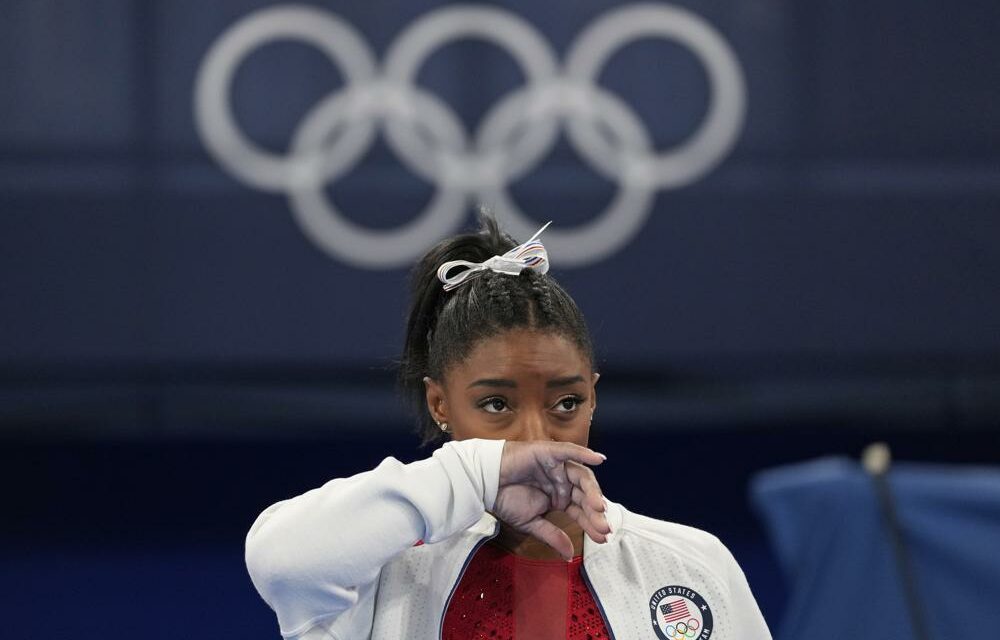When actress Emma Stone was in elementary school in Scotsdale, Arizona, she took a gymnastics class. While standing on the lower bar of the uneven parallel bars, her instructor let go of her feet, she says. This led to her falling forward, landing on a mat. As she fell, she clutched her arms to her chest.
She broke both arms. She spent that summer in casts … in Arizona.
That was a little kid (whose bones are softer than that of adults) in a relatively simple fall onto a mat.
In 1980, just two weeks before the summer Olympics in Moscow, World Champion Elena Mukhina was still recovering from a broken leg. She had missed several competitions in 1979, and her coach Mikhail Klimenko wanted her to perform a maneuver called the “Thomas salto,” a 1 ½ back flip with 1 ¼ twists ending in a forward roll. The move had been performed by American Kurt Thomas, but never by a female gymnast.
Mukhina was reluctant to attempt the move, telling her coach that she would break her neck performing that element in her floor exercise. Her coach responded, she said, by saying “gymnast don’t break their necks.”
In preparing for the approaching Olympics, the 20-year-old Russian attempted the maneuver.
She broke her neck and was rendered a quadriplegic for the rest of her life, which sadly was only another 26 years. She died at 46.
In 1988 American gymnast Julissa Gomez, 15, slipped while doing a “routine” vault, hit her head on the horse and landed unconscious and not breathing. She was rushed to the hospital nearest the meet – in Tokyo– where she was found to have a broken neck. Following an accidental disconnection from her ventilator in that hospital, she suffered brain damage. She died three years later in Houston, where her parents had cared for her since that accident.
Gymnastics, put simply, can be a dangerous sport and great care is appropriate to protect athletes at all times. Their lives are more important than their medals. Full stop.
Now comes Simone Biles, the American gymnast with nothing to prove. She’s the greatest of all time in her sport and she has already demonstrated courage under immense pressure.
When she talks about pressure, it’s not to cultivate sympathy. Instead, she conveys that yes, sure, she feels the weight of the Olympics–the importance, the expectation of representing her country. Who understands this better? Maybe Michael Phelps… maybe.
She isn’t whining. She isn’t trying to lower anyone’s expectations.
So when this person, this brilliant, accomplished, highly decorated champion, who is the only person on the planet who can actually make this assessment of what’s happening in her brain, says that she got a case of “the twisties” wherein a gymnast gets “lost in the air” during her vault in the team competition, I think about these young women who went AGAINST what their own bodies and minds must have been telling them and did the thing anyway, paying a price most dear.
This week, Biles continued evaluating her condition. As a vertigo sufferer, I understand that feeling of disconnection with what’s up and what’s down. She determined that she would be able to compete in the individual balance beam event, where she placed third IN THE WORLD– a bronze medal that in many ways, she said, is more precious than the truckload of gold she’s won in previous Olympics.
When I think of what I need to know when it comes to being a champion, having courage, integrity and commitment to my team, I am ALWAYS going to think of Simone Biles. Her example of simply telling the truth is all I need to know.
 Jean Bolduc is a freelance writer and the host of the Weekend Watercooler on 97-9 The Hill. She is the author of “African Americans of Durham & Orange Counties: An Oral History” (History Press, 2016) and has served on Orange County’s Human Relations Commission, The Alliance of AIDS Services-Carolina, the Orange County Housing Authority Board of Commissioners, and the Orange County Schools’ Equity Task Force. She was a featured columnist and reporter for the Chapel Hill Herald and the News & Observer.
Jean Bolduc is a freelance writer and the host of the Weekend Watercooler on 97-9 The Hill. She is the author of “African Americans of Durham & Orange Counties: An Oral History” (History Press, 2016) and has served on Orange County’s Human Relations Commission, The Alliance of AIDS Services-Carolina, the Orange County Housing Authority Board of Commissioners, and the Orange County Schools’ Equity Task Force. She was a featured columnist and reporter for the Chapel Hill Herald and the News & Observer.
Readers can reach Jean via email – jean@penandinc.com and via Twitter @JeanBolduc
Chapelboro.com does not charge subscription fees. You can support local journalism and our mission to serve the community. Contribute today – every single dollar matters.


